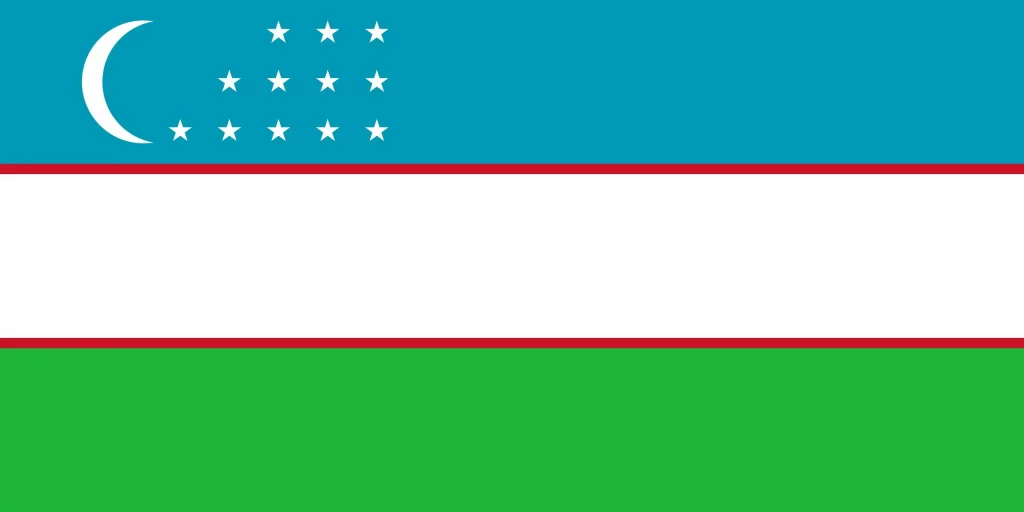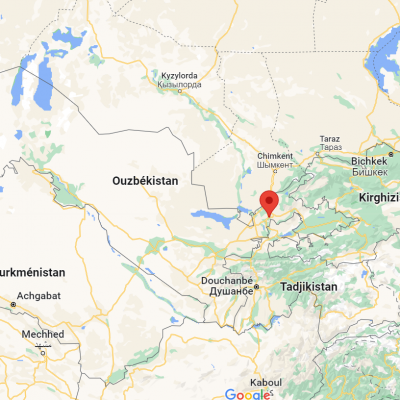Exploration in Solidarity Lands
(2023)
Uzbekistan is a country in central Asia sharing borders with Turkmenistan, Kirghizistan, Afghanistan and Kazakhstan. A small part of the country touches the Aral Sea, but it is still considered as doubly landlocked since you would have to go through at least to other countries to get to a Global Ocean. The capital of Uzbekistan is Tachkent, the city has approximately 3 million inhabitants and is the second economic region with a high demographic growth. Ouzbek people are mostly muslims although it has a secular government. The official language is Uzbek, but Russian is also widely used. There are some native languages like Tadjike and Karakalpak. In general, English is rising in poplarity, but very few people speak it for now.
The country is extremely large and is full of natural ressources and varied landscapes. There are two types of landscapes : 80% of the territory is desert, as in the Kyzylkum Desert. In the East, there is the Tian Shan Mountain Range drawing the border with China. Ubekistan is also crossed by rivers. The most important ones are the Amou Daria River and the Syr Daria Rive. However, the water ressource is naturally purely distributed which causes problem regarding access. Temperatures are extremely variable. It is very hot in summer and very cold in winter, with temperatures reaching 40 and -40 degrees Celsius.
An important part of the population lives from agriculture, notably coton, fruits, wine production and farming. The economy has developped on the soviet model. The important need for irrigation in these cultures lead to a water shortage which almost lead to the disappearance of the Aral Sea, an ecological disaster. The country is one of the most impacted by climate change and also extremely polluted.
Since 2016 and the death of the former President of Uzbekistan, leading the country since its independance after the fall of the Soviet Empire in 1991, the country is in a political transition phase marked by an openness and a relative but new progressivism. It has especially impacted the respect of Human Rights. The government is also trying to put environment friendly mesures in place with, for example, a Biodiversity Action Plan. Sadly, it still has to deconstruct many structural obstacles before it can be implimented. The political openness also allows the country to develop its tourism. In spite of the question of security and the proximity with Afghanistan, the country wants to increase the economic aspect of this sector by attracting more international travellers. It is important to highlight the fact that it is one or the few countries that benefits from a ‘normal vigilence’ status by both Canadian and French governments. In addition, Uzbekistan is one of the few countries that has not been heavily affected by the COVID 19 pandemic. Its tourism offer has therefore not been impacted during that period.
Formerly, the Silk Roads went accross the country, creating a true crossroads of civilizations and leaving behind many cultural gems like great mosques and mausoleums, particularely in the city of Samarkand. This rich cultural heritage, added to the beauty of the different landscapes and the numerous opportunities of authentic connections make it destination of choice. Still little visited, the countrys goal is to welcome 10 million tourists by 2030.


Subscribe to the travel newsletter from our collaborative booking platform Vaolo to find out what’s new, follow our explorers and receive tips for more conscious travel.
The use of the masculine gender has been adopted for ease of reading and has no discriminatory intent.
© 2026 All rights reserved. Village Monde.
By continuing to use the site, you agree to our privacy and cookie policy
I accept